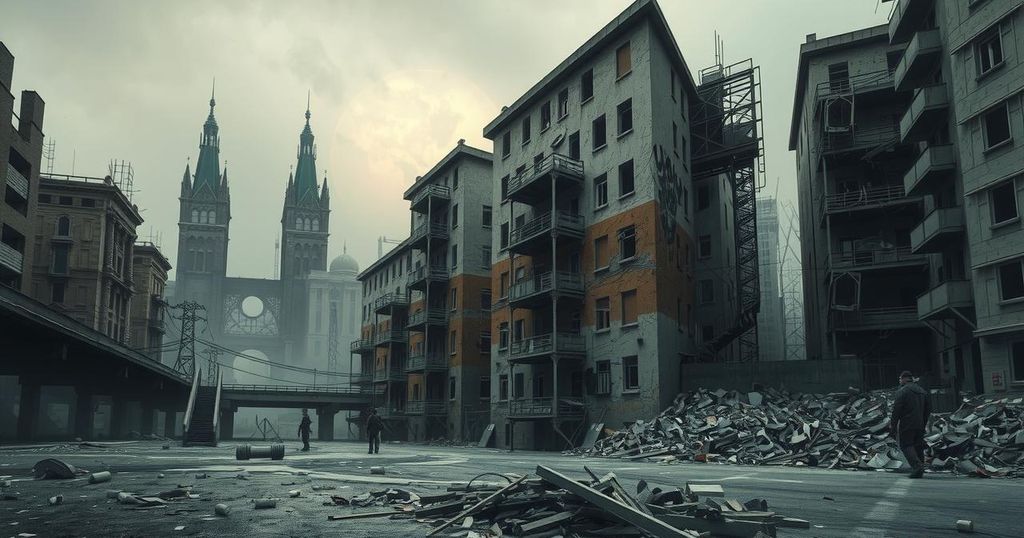Escalation of Violence in the Democratic Republic of Congo: The Rise of M23

A violent resurgence by rebel group M23 in the DRC has escalated conflicts that have persisted for decades, highlighted by territorial advances towards Goma. The Congolese government has mobilized forces, while humanitarian crises continue as civilian displacement surges. The situation has drawn international attention due to the DRC’s wealth in minerals and the implications for global supply chains, particularly cobalt, as geopolitics intertwine with regional stability.
The Democratic Republic of Congo (DRC) is currently experiencing a resurgence of violent conflict as the rebel group M23 seeks to extend its territorial control. The escalation is marked by M23’s recent assault on Goma, a critical urban center in the eastern DRC, prompting United Nations warnings of potential for a widespread war. In response, the Congolese government has mobilized its forces and President Félix Tshisekedi declared an intention to reclaim all lost territories.
This resurgence is part of a prolonged conflict dating back decades, further deteriorating since 1960, when the DRC gained independence from Belgium. Recent fighting has intensified, with over 400,000 individuals displaced last month alone. Armed clashes have claimed the lives of United Nations peacekeepers and left community infrastructure in tatters, with reports indicating corpses on the streets of Goma.
The M23 rebel group, formed by ethnic Tutsi members, has been actively engaged in the ethnically charged conflict since 2012, purportedly protesting against alleged discrimination from the Congolese government. The group’s lineage traces back to Rwanda, where longstanding ethnic tensions have fueled conflicts, including a genocide that triggered a mass exodus of Tutsis into the DRC. Rwanda’s support for M23 has been alleged, while the Congolese government continues to call for protection of minorities.
China plays a significant economic role in the DRC, controlling approximately 80% of cobalt production, which is crucial for global electronics. The ongoing conflict leaves these mineral-rich regions vulnerable, as armed groups vie for control. Despite China’s condemnation of M23’s insurgency, experts remain cautiously optimistic regarding imminent threats to supply chains.
Rwanda’s involvement has evolved in response to the international community’s reaction to past conflicts. While aid flow to Rwanda continues, it maintains a strategic alliance with Western nations as a reliable partner in the region. However, discontent regarding the ongoing violence has prompted some nations to reconsider their support for Rwanda, yet the M23’s operations persist without apparent restraint.
The Democratic Republic of Congo has endured years of multifaceted conflict exacerbated by external influences and internal strife. The DRC’s vast resources and geopolitical significance have made it a focal point for global interest, particularly regarding minerals essential for modern technology. The M23 rebel group’s offensive reignites historical tensions tied to ethnic differences and regional power dynamics, stressing the urgent need for comprehensive and structured resolutions to ensure stability in the conflicting areas.
In conclusion, the situation in the DRC presents a complex interplay of historical grievances, external intervention, and resource exploitation that underscores the necessity for an immediate, consolidated approach to conflict resolution. The implications of this conflict extend beyond regional borders, necessitating sustained international attention and proactive measures to support peace-building efforts and protect vulnerable populations in the DRC.
Original Source: www.nbcnews.com







